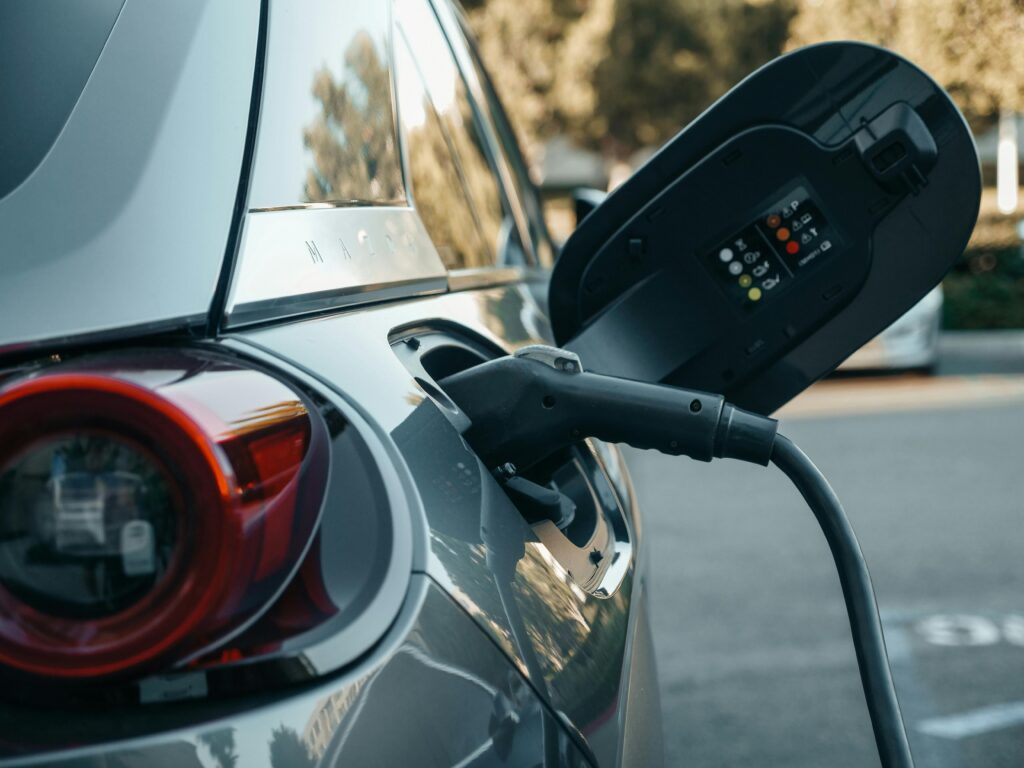The availability of electric vehicles is on the rise for the average everyday driver. Electric vehicles are on the cutting edge of the industry and might be more in reach than you think. Plus, with environmental concerns, it could be the time to switch. Here are some considerations and differences between electric and gas vehicles.
Upfront costs of electric and gas vehicles vary depending on your selection. Common hybrid cars, like a Toyota Prius, have been readily available for years. The Prius gets an excellent estimated 57 MPG (miles per gallon) because not all of the weight falls on the gas engine. The electric motor kicks in during start and stop city driving, which allows the car to drive without relying on the gas engine. More and more vehicles are on the market with a hybrid option, such as the 2025 Toyota Camry, the 2025 Honda Civic, and the 2025 Kia Sorento. These particular models don’t need to charge the battery at a charging station, instead they charge via regenerative breaking. However, the prices of hybrid models are more expensive than the gas engine versions of the same vehicles.

In general, electric vehicles have a higher MSRP (manufacturer’s suggested retail price) than gas vehicles. Thus, your down payment and monthly payment will likely be higher too. However, the U.S. Department of Energy offers tax credits on electric vehicles. While you can’t take advantage of the tax credits at the time of purchase, these incentives still add up over time.
Another consideration to make about electric vs gas vehicles is the availability of charging stations. You can find a gas station almost anywhere and be on the road again for hours because of a five-minute stop. However, not all gas stations have charging stations. You can find charging stations that don’t have gas pumps, but there are still more gas stations than charging stations. A stop at a charging station can be upward of half an hour. Some have installed charging stations at their homes, so their car can charge overnight or when they are parked for long periods of time. These chargers often take longer to charge the battery too. While you won’t be paying for weekly gas stops, you’ll be paying a higher electric bill instead.
Let’s talk about insurance. Insurance costs for electric cars tend to cost more than for gas cars for two reasons – vehicle cost and repairs. Since electric vehicles tend to cost more than gas vehicles, the insurance premiums also cost more. Electric vehicles cost more because they are a newer technology and the high demand of the needed minerals. In addition to the materials being high in demand, so are electric car mechanics. Unfortunately, you could consider electric car mechanics low in supply, so it is more costly to repair damage.
In the case that you are in an accident, many electric vehicles automatically lock the wheels to prevent the car from rolling. While this can be a safety perk, it makes electric vehicles difficult to move after an accident. A gas car could look shabby after an accident but be drivable. An electric car with the same amount of damage would have to be towed.
Finally, driving an electric car prevents less carbon pollution than a gas-powered car. Electric vehicles aren’t entirely off the took because of how local power is generated. However, your CO2 footprint will still be smaller with an electric car.
So, should you make the switch? Maybe! Everyone uses their car to drive different frequencies and distances. Consider these comparisons about upfront costs, charging availability, insurance costs, and repair costs to determine if you are ready to change from a gas car to an electric car. When you make your next car purchase, whether electric or gas, come to Alltru for low rates, flexible terms, and your first 90 days payment-free* for qualified buyers.
*90 days no payment offer only for qualified borrowers. Offer available for new auto loans and auto loan refinancing. Interest still accrues during the 90 day deferral period. Additional criteria may apply. Loans are subject to credit approval. Floor rate is 4.99% APR. Maximum rate is currently 17.99% APR. Rates can vary based on creditworthiness, age of vehicle, and terms of the loan. Your actual rate can be higher or lower depending on credit performance. Credit scores 599 and lower not eligible for 90 days no payment offer. Rates & terms subject to change based on market conditions and borrower eligibility. Before you can refinance your loan at Alltru, a savings account is required with a minimum account balance of $1.00. Alltru does not charge a fee to refinance your loan. Other title and licensing fees may apply. Minimum loan amount of $5,000. Membership and certain restrictions apply. Existing Alltru auto loans do not qualify for this promotion.







